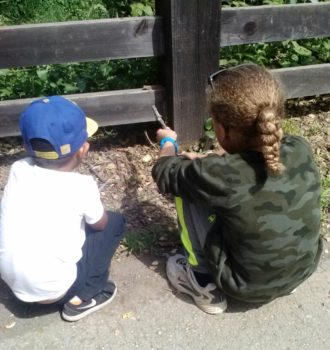How to Set Boundaries that Support Our Children’s Growth!
How to Set Boundaries that Support Our Children’s Growth!
It is the start of a new school year and we are busy trying to help our children organize themselves for success. The warm autumn days beckon our children to play outside until the family dinner. After dinner, there are new television shows to watch. Our children want to play with their toys, look at books, and play on the family computer, phone, or tablet.
Setting Boundaries Ideas
Many parents ask us how we can set household boundaries and rules to curtail these distractions and complete homework and prepare for a new school day without arguments and negotiations. We recently asked family members for their best suggestions on setting boundaries. Summarized below are some great tips:
- Plan ahead for distractions with a weekly evening schedule that defines the time for afterschool play, eating dinner with the family, completing homework, independent reading, discussing the day with parents, getting ready for bed, and preparing for the next school day.
- Identify an alternative schedule when there are special events at school, dentist or doctor appointments, sporting events, and family obligations on a school night.
- Work with the school to plan ahead for homework assignment completion. Most schools send out homework packs once a week for students with their parents support to complete within several days. Other schools provide an afterschool homework club that you can have your child attend for added support. Other parents plan homework sessions with friends where children can rotate their homework assignments at different households to enlist the support of an expert parent in reading, writing, arithmetic, history, performing arts, and science projects.
- When children fight with others and siblings, it is important to be clear about household rules with consequences for misbehavior. When siblings hit or hurt each other, they should be removed from a situation and sit with a reflective timeout. Typically, a timeout is a minute per age. For example, a five-year old’s timeout will be for five minutes. After the timeout, discuss with the child what has happened and have them make amends with the sibling or other child.
- If children continue to misbehave, they may need to return home or stay away for others as they are probably tired, overstimulated, or upset about a situation.
- Limit screen time to no more than an hour a day unless it includes homework assignments. It is important to give your children time to relax and play outside.
- Keep your children on a regular meal time and sleep schedule to ensure that they are well rested and ready to learn and enjoy life.
- Schedule regular times that your child can play with neighborhood and class friends even if it includes scheduled afterschool activities. This ensures that your child has a support system.
- Be there for your child when they are under stress or are sad and support their problem-solving skills.
- Be a role model of personal healthy growth and development.
Happy first weeks of personal growth during the new school year!
Joyce
Copyright (c) 2018 by GenParenting
 Children
Children Can My Grandson See His Dad Yet?
Can My Grandson See His Dad Yet? What Will We Do with Children This Summer?
What Will We Do with Children This Summer?